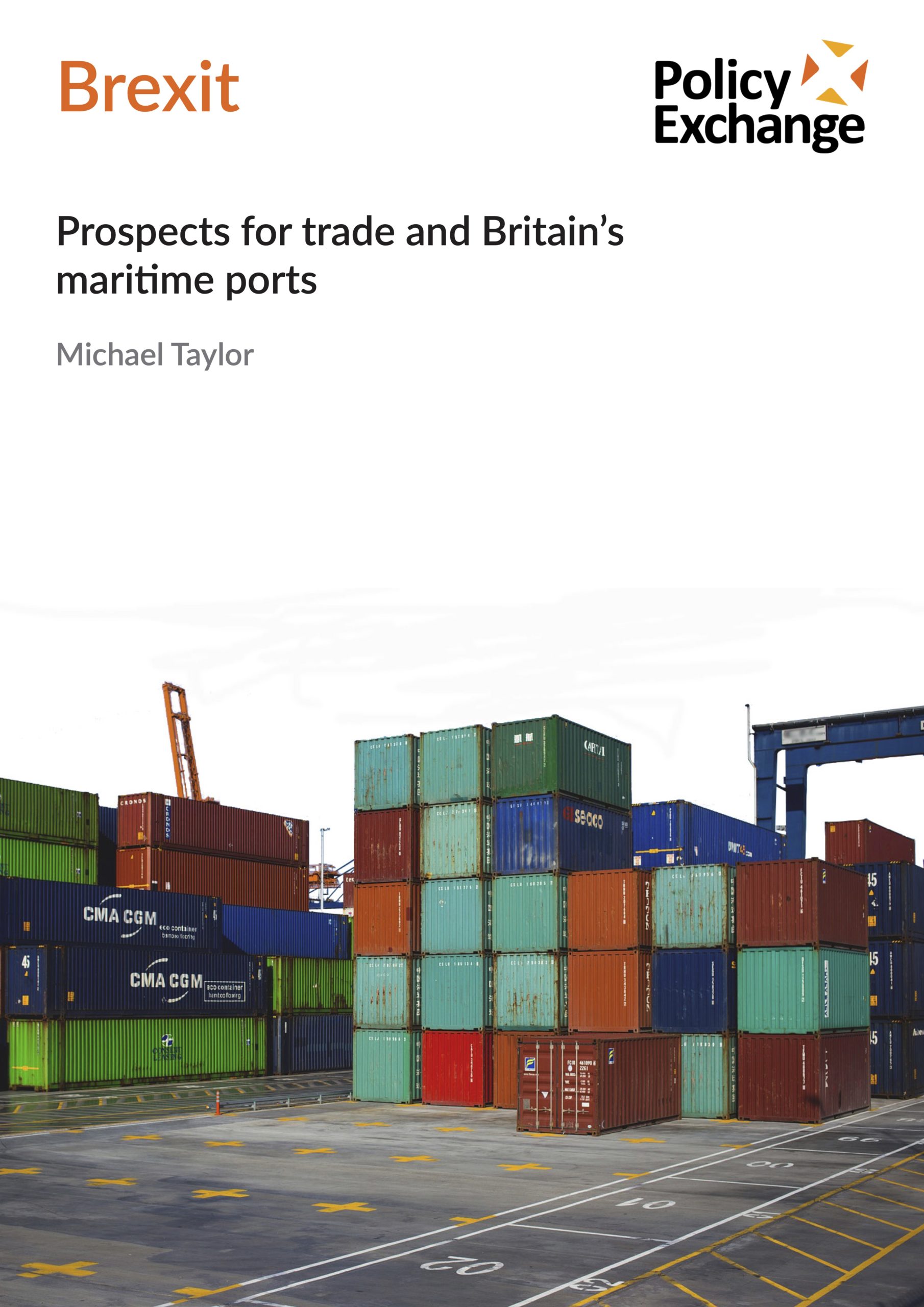
Brexit: Prospects for Trade and Britain’s Maritime Ports
Britain’s competitive and dynamic sea ports are well placed to reap the rewards of growing trade flows in and out of the UK. Around £570 billion in trade passes through Britain’s sea ports and after Brexit this is likely to increase, argues Policy Exchange’s new report Brexit: Prospects for Trade and Britain’s Maritime Ports.
The outlook for trade generally and for Britain’s ports in particular is positive outside the EU, when we will be free to make new trade deals with the rest of the world. For many years UK exports have been growing much faster to non-EU countries than to the EU and the share of our goods exports going to the EU has fallen from just over 60% to 49%. The report also suggests that predictions of long queues at customs are doom-mongering as only 1.5% to 2% of non-EU goods imports into the UK are subject to customs checks and 80% of these are on health grounds, such as food hygiene and quality standards.
The report recommends that:
- Customs clearance should be speeded up wherever possible by adopting advance clearance and “trusted trader” schemes like the Authorised Economic Operator scheme.
- The successful introduction of the new Customs Declaration Service (CDS) must be a priority. The Government, through HMRC, should ensure that sufficient resources are made available in a timely fashion for this changeover to occur as smoothly as possible.
- The UK should seek a reciprocal agreement with the EU on trade in animal and plant products, mutually recognising health and safety standards.
- Free ports should be considered but on the narrow definition where all import tariffs are removed but generous tax breaks and subsidies are excluded – although free ports would not be necessary if the UK were to adopt a policy of unilateral free trade after Brexit.
Michael Taylor, Policy Exchange’s Economics Research Fellow, who wrote the report, said:
“The biggest risk to global trade is increased protectionism – not Brexit. If the UK becomes a global champion of free trade after Brexit, our competitive private ports sector is well placed to make the most of the resulting opportunities.
“Predictions of long tailbacks at new customs checks are doom-mongering – less than 2% of our current non-EU trade is subject to checks. Wherever possible the UK should mitigate the possible effects of leaving the customs union by minimizing or abolishing import tariffs and streamlining movement across UK customs borders through “trusted trader” schemes as well as seeking trade agreements to facilitate UK exports to the EU.”

